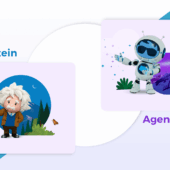The field of Business Analysis (BA) is constantly evolving, driven by changing business needs, technological advancements, and new methodologies. As we move closer to 2025, the role of the Business Analyst is expected to undergo even more significant transformation. Organizations are increasingly relying on data-driven decisions, agility, and automation, which means the skills required for BAs must evolve accordingly.
In this blog, we’ll explore the emerging trends in Business Analysis and the key skills that professionals need to develop to stay competitive and relevant in the future.
1. Data Analytics and Business Intelligence
The future of business analysis is inextricably linked to data analytics. As businesses continue to generate vast amounts of data, the role of Business Analysts will increasingly involve data-driven decision-making. BAs must be proficient in using data analytics tools and techniques to provide valuable insights, identify trends, and guide strategic decisions.
By 2025, it’s expected that businesses will require BAs to interpret complex data sets, generate actionable insights, and even create data models to improve operational efficiencies and business outcomes. Proficiency with data visualization tools like Power BI or Tableau, along with a solid understanding of machine learning and predictive analytics, will be crucial for BAs.
2. Artificial Intelligence and Automation
As Artificial Intelligence (AI) continues to mature, it will impact every facet of business, including Business Analysis. By 2025, AI will no longer be just a buzzword but a common tool used in business decision-making. Business Analysts will need to understand how AI and machine learning can be leveraged to solve business problems, improve customer experiences, and automate repetitive tasks.
In the realm of test automation, AI-driven tools are already improving the speed and efficiency of quality assurance processes. Likewise, AI and robotic process automation (RPA) will automate many routine BA tasks such as data collection, report generation, and even documentation, freeing BAs to focus on more strategic activities. Natural Language Processing (NLP), for example, will help BAs analyze unstructured data and gain insights from customer feedback, social media, and more.
3. Agile and Hybrid Methodologies
Agile has become the dominant approach to software development, and it’s now influencing broader business practices. Business Analysts are no longer confined to a traditional, waterfall model of analysis. As organizations embrace Agile methodologies more broadly, BAs will need to adapt to Agile principles, working in short cycles and collaborating closely with cross-functional teams.
Hybrid methodologies, blending aspects of Agile and traditional approaches, are also on the rise. The future BA will need to be comfortable working in flexible environments, adapting quickly to changes, and integrating Agile practices while maintaining the rigor and structure required for certain projects. They’ll need to be familiar with various Agile frameworks, such as Scrum and Kanban, and adjust their approach depending on the project’s needs.
4. Customer-Centric Business Analysis
In the past, Business Analysis was often focused on internal business processes and technology. In the future, however, BAs will play a pivotal role in delivering a customer-centric approach. By 2025, customer experience (CX) will be at the core of business strategy. Business Analysts will need to integrate customer insights into the requirements gathering and solution development processes.
BAs will need to collaborate with marketing, customer service, and UX/UI teams to understand customer pain points, preferences, and behaviors. Using customer feedback, data from various touchpoints, and customer journey mapping, BAs will ensure that the solutions they propose align with customer needs, ultimately helping businesses drive engagement, loyalty, and satisfaction.
5. Enhanced Collaboration Tools and Remote Work
The pandemic has accelerated the shift toward remote and hybrid work models. As businesses continue to embrace flexible work arrangements, Business Analysts will need to use a growing suite of collaboration tools to stay connected with remote teams and stakeholders.
By 2025, BAs will be expected to be proficient with a variety of communication tools, including video conferencing, collaboration software (like Slack, Microsoft Teams, and Jira), and project management platforms. This trend will make it even more critical for Business Analysts to manage projects and stakeholders effectively in a virtual or hybrid environment, ensuring that they can still facilitate workshops, conduct interviews, and gather requirements regardless of physical location.
6. Cybersecurity and Risk Management
With the increasing reliance on digital systems and data, cybersecurity and risk management will continue to be top priorities for businesses. By 2025, the role of the Business Analyst will involve assessing cybersecurity risks and ensuring that business solutions comply with data protection regulations (such as GDPR and CCPA).
BAs will be expected to identify potential risks in the business processes they analyze and work closely with IT and security teams to mitigate these risks. A basic understanding of cybersecurity principles and an awareness of regulatory standards will become essential skills for future BAs.
Key Skills for Business Analysts in 2025 and Beyond
To succeed in the evolving landscape of business analysis, professionals will need to focus on developing the following key skills:
- Advanced Data Analysis: The ability to analyze complex data and derive actionable insights using data analytics and business intelligence tools.
- AI and Automation: A strong understanding of AI, machine learning, RPA, and their applications in business analysis.
- Agile Expertise: Deep familiarity with Agile frameworks and the ability to work in Agile environments, adapting to evolving requirements.
- Customer-Centric Mindset: The ability to design solutions that prioritize customer experience and align with customer needs and expectations.
- Collaboration and Remote Work Tools: Mastery of virtual collaboration tools and effective communication in remote or hybrid work settings.
- Cybersecurity and Risk Management: Understanding the security and compliance landscape and how to mitigate risks within business solutions.
Conclusion: Embracing Change and Seizing Opportunities
The future of Business Analysis is exciting, with endless opportunities for those who are ready to adapt and grow. As technology continues to advance and business needs evolve, Business Analysts will be at the forefront of driving change, helping organizations stay competitive and agile in a fast-changing world.
By mastering emerging trends, acquiring new skills, and embracing the evolving role of the BA, professionals can position themselves for success in 2025 and beyond. The key to thriving in this dynamic field is a commitment to continuous learning and staying agile in the face of change.
Blog by:-
Manisha Singh
(Director of Business Analyst)
Virtuowhiz Consulting Pvt. Ltd.







